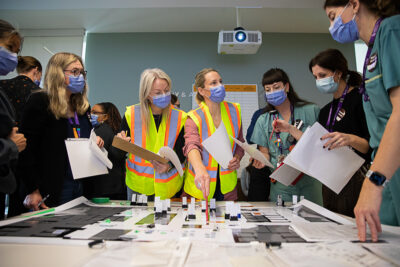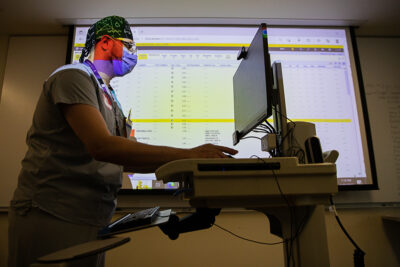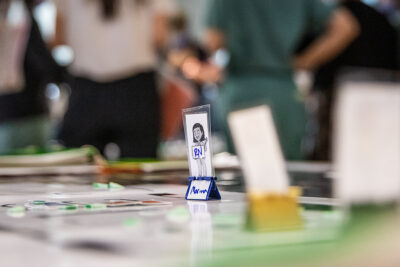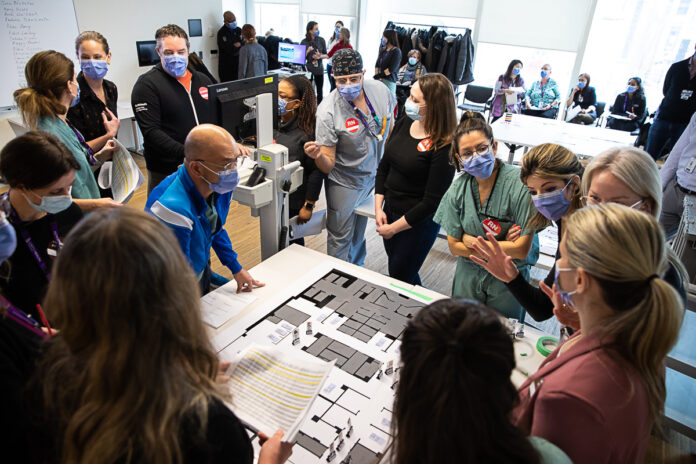By Olivia Lavery
For most people who die from major trauma incidents, like car accidents and gunshot wounds, death occurs before they even make it to the hospital. That troubling fact led a team of St. Michael’s physicians and scientists to ask: what if we could bring aspects of the hospital to them?
Drs. Johannes von Vopelius-Feldt and Brodie Nolan, emergency physicians and trauma team leaders at St. Michael’s, are leading a chart review study to examine the feasibility of stationing prehospital critical care teams (CCTs) in Toronto to respond to major traumas. These teams, which successfully operate in several European cities, would bring elements of hospital care like blood transfusions, general anesthesia, and focused surgical procedures directly to patients in the field.
“The idea isn’t to replace pre-existing paramedic care, but to augment it for the small percentage of critically ill or injured patients,” said Nolan.


 The study will use Emergency Medical Services (EMS) data, coroner’s reports, and geospatial analysis to identify where major traumas occur in Toronto and evaluate the best way for CCTs to reach sick and injured patients.
The study will use Emergency Medical Services (EMS) data, coroner’s reports, and geospatial analysis to identify where major traumas occur in Toronto and evaluate the best way for CCTs to reach sick and injured patients.
The study, a collaboration between St. Michael’s, Sunnybrook and the University of Toronto, recently won two small seed grants, including the Trauma Association of Canada (TAC) Learners Research Grant and the University of Toronto’s EMH Seed Grant.
The care teams would include physicians and paramedics, and pre-existing dispatch systems would alert them to major trauma incidents. Nolan and von Vopelius-Feldt are studying the efficacy of using both ambulances and helicopters.
“Patients who arrive at a trauma centre early do better,” said Dr. Nolan, adding that having a continuum of care from the field straight to the hospital or operating room can be vital.
The team says St. Michael’s is well positioned to support CCT research because of its location, patient population, and strong research and trauma background. St. Michaels’ is one of only two adult level 1 trauma centres in Toronto.
“It’s an urban trauma centre. Trauma tends to effect regions with marginalization more heavily. These populations have challenges in access to healthcare. There’s an element of equity here,” said von Vopelius-Feldt.
Nolan, who is a scientist at the Li Ka Shing Knowledge Institute, and von Vopelius-Feldt both work as transport medicine physicians for Ornge, the provincial critical care transport service that treats and transports critically ill or injured patients to St. Michael’s. They say that conducting these early stages of research before potentially launching a CCT service in Toronto will allow future decision making to be data-driven.
“We’ll be able to match what we provide to the needs of our communities,” said von Vopelius-Feldt.
The team plans to use the grants to hire a student to review coroners’ reports and embed graduate students in both the feasibility and equity analyses, including geospatial analysis.
Nolan and von Vopelius-Feldt, along with Program Manager Melissa McGowan, are part of a newly established research collective at Unity Health focusing on pre-hospital, trauma and resuscitation sciences. They say this study is part of the early stages of their goal to become a world-leading group.
“It’s the first step,” said von Vopelius-Feldt. “Every journey starts with the first step.”
Olivia Lavery is a Communications Advisor at Unity Health.


